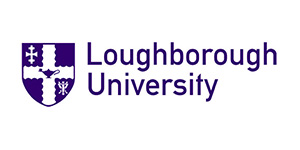A Guide to the UK School system
The UK Education system is made up of 14 years of education. The first year of education is called ‘reception’ and children typically start in a reception class aged 4. The school year in the UK starts in September.
Most children who follow the state education system (funded by the UK government) complete 7 years of Primary school education at a Primary school, before moving to a Secondary school. The Secondary school covers education from ages 11-18.
The private school sector (fee paying) can have a different structure, depending on the school. Some schools that take pupils from ages 4-18 will usually separate out their Secondary school from their Primary school.
Other schools may separate out their ‘Prep school’ from their ‘Senior school’ and this separation usually takes place when pupils are aged 13.
Within the senior school, the 6th Form is also usually treated as a separate institution. The 6th form is made up of pupils aged 16-18 who are studying for their final exams (A Levels or IB) before moving onto University.
What exams are taken in the UK?
GCSEs/IGCSEs
There are 2 main sets of public exams taken in the UK. Usually in year 11 (when most pupils are aged 16) pupils will take GCSE’s (General Certificate of Secondary Education). Most very able pupils will take between 8-10 GCSE’s covering a range of subjects. All pupils must take English and Maths and English is usually split between 2 separate GCSE’s English language and English Literature.
Most pupils will also take at least 1 science subject.
GCSE courses last 2 years and so pupils select their subjects for study and start their GCSE courses in Year 10.
A Levels/IB (International Baccalaureate)
Depending on how well pupils perform in their GCSE’s will impact on which A Levels they then take in years 12 & 13 (6th form). Most students will select 3 A levels to study intensively for 2 years. In Scottish schools students mainly study Highers rather than A Levels, but they are viewed as equivalent to A Levels by international Universities both in the UK and abroad.
A significant number of schools in England and Wales also offer the IB (International Baccalaureate) instead of, or in addition,to offering A Levels.
The IB is a much broader qualification in terms of subjects studied, than A Levels and rather than being graded by letters-A*, A, B, C, D, E as A Levels are, the IB is graded numerically with one final numeric value being awarded-the maximum score in the IB is 45.
For more information about the difference between the IB and A Levels, please do read a recent blog post we wrote for Study Travel magazine https://ukeducationguide.com/a-levels-v-ib/
When is the best time to transition from an Overseas education system to the UK system?
This is a critical question for all families to consider and there is not 1 right answer as each child and each family is different.
The decision should not just be an academic one, but must also consider the views of each child and if they feel ready to move overseas to study.
We pride ourselves on exploring this fully with each family we work with and will explore these issues in later posts, but for more information visit or email us hello@educationguide.com



